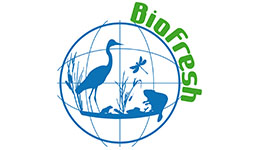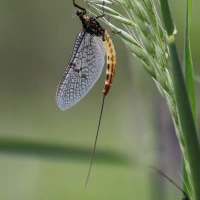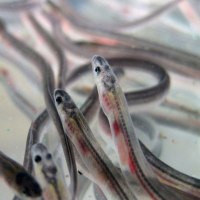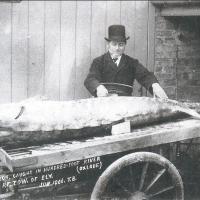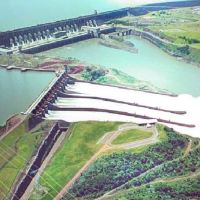Meet the BioFresh team: Sonja Stendera

Lake Vendel. Image: S Stendera
We continue our series of interviews with BioFresh scientists today with Sonja Stendera, a freshwater biologist at the University of Duisberg/Essen, Germany.

1) What is the focus of your research for BioFresh, and why?
SS: One of the objectives of BioFresh is to analyse how key present and future environmental pressures impact freshwater biodiversity. In order to summarise the present state of the main drivers and stressors determining freshwater biodiversity patterns, my colleagues and I have conducted a literature review on this topic which also aims to identify possible research gaps in freshwater ecology. The main aim is to raise awareness of where further research is needed to fully understand freshwater ecosystems and thus facilitate their protection. A second part of my research is to then use this information to analyse how certain organism groups of different freshwater ecosystems respond to major environmental stresses such as eutrophication or climate change.

Lake Erken. Image: S Stendera
2) How is your work relevant for policy makers, conservationists and/or the general public?
Interest in the restoration or rehabilitation of freshwater ecosystems has increased recently and several restoration programs are well developed and partly successfully practiced. In order to develop holistic conservation approaches and cost-effective restoration programs, the knowledge of different aspects of biodiversity – i.e. freshwater biodiversity patterns over a range of spatial and temporal scales – is crucial. Holistic conservation, along with active restoration will ensure that future generations can enjoy most ecosystem services. However, holistic conservation requires a deeper insight into global biodiversity patterns: identifying what are the drivers and especially how can we improve our knowledge of the unknown. Thus, our work aims to provide indications where further research is needed, and identify the ecosystems and organisms that have been neglected in freshwater ecology, conservation and planning. This work is important in aiding future freshwater ecosystem management, conservation and sustainable use under multiple and changing pressures.

Lake in autumn. Image: S Stendera
3) Why is the BioFresh project important?
BioFresh will raise awareness of the importance of freshwater ecosystems to the public, and provide an excellent data portal on freshwater life for freshwater scientists and ecologists. Having the data available and right on the screen, especially as a map (atlas), aids in understanding the situation faced by freshwater ecosystems. It will help scientists – and also policy makers and the ‘people-next-door’ – to better understand what the on-going global freshwater and the freshwater biodiversity crisis is about and thus (hopefully) encourage them to take action.

Sampling in a Swedish upland stream. Image: S Stendera
4) Tell us about a memorable experience in your scientific career
When I was doing my master thesis at the field station of Lake Erken, Sweden, I conducted a laboratory experiment with benthic algae and their grazers. The benthic algae were allowed to grow on tiles, exposed into the lake in summer and now ready to harvest. The first thing I had to do was to get them out of the water. I thought that would be an easy task, but it was January – minus 20 degrees – and Lake Erken was covered with 25 cm thick ice! And there was no mark where to find them. So, I had to first cut the ice by hand, searching around and finally had to dive into the cold water to pick them up. It was exhausting and took the whole day, but totally fun! However, it made me kind of humble against anything which would look like ‘an easy task’ at a first glance.
Another memory is rather from my pre-scientific career, where I was a student and I had the chance to listen to E.O. Wilson in person, when he gave a lecture at the University of Cologne.
5) What inspired you to become a scientist?
Pure curiosity!
6) What are your plans and ambitions for your future scientific work?
With my research and the data we gather within BioFresh, I hope to contribute more to the knowledge of freshwater ecology and biology and thus for protection of freshwater ecosystems and thus the vital resource – water.


